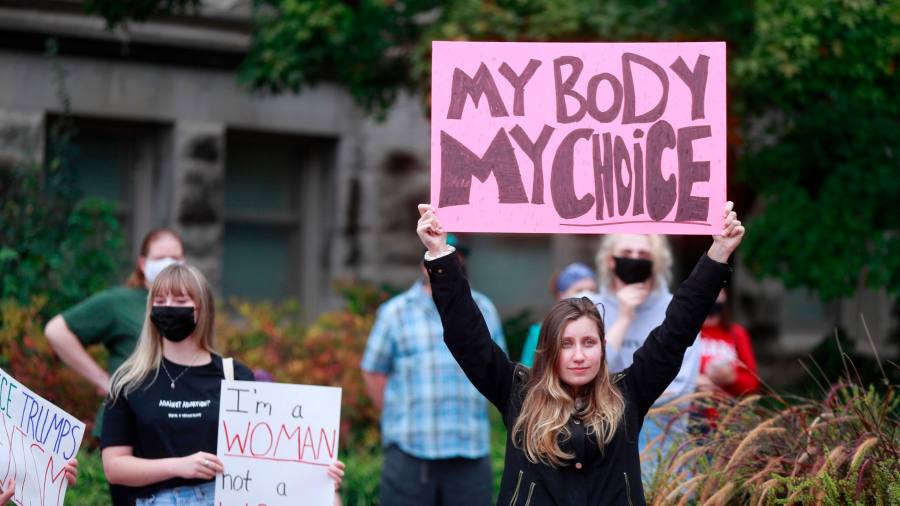
Some Eli Lilly employees have requested transfers from the company’s Indiana operations following the Republican-controlled state government’s enactment of legislation to ban most abortions in the state.
David Ricks, Lilly’s chief executive, told the Financial Times some staff had asked to relocate outside the state even though an Indiana judge has temporarily halted the proposed ban. The new rules had created challenges for people to come and work in Indiana and if Lilly wanted to attract and retain the best staff it had to grow in other locations, he added.
Ricks said the legislation approved by the Indiana state legislature on August 5 was “rushed”, could have been more deliberative and should have considered whether it would undermine employers’ ability to recruit and retain talent from out of state.
“No doubt over time, if we have a top scientist, for instance, who is uncomfortable living in Indiana because of the law, we have opportunities to point them at other sites where there are different laws,” said Ricks in an interview.
He said Lilly is not making a judgment about the ethics of abortion but wanted to ensure employees could, if they wanted, work in places where they are covered by government rules protecting these rights.
Lilly did not provide details on how many staff have asked to move from Indiana, where it employs about 10,000 of its 36,000 global workforce. But Ricks said the restrictions would not become an impediment to working for the company and it would consider factors such as abortion when considering relocation requests.
Indiana was the first state to pass sweeping restrictions that ban abortions in most circumstances after the US Supreme Court in June overturned the 1973 Roe vs Wade ruling which guaranteed abortion rights.
An Indiana judge subsequently issued an injunction blocking the ban following a lawsuit brought by abortion providers, which argued the legislation violated the state constitution. Indiana’s attorney-general is appealing against the injunction and the state Supreme Court is due to consider the issue next year.
Lilly, which is headquartered in Indianapolis, is one of a handful of multinational companies to warn that it would divert employment from its home state following the enactment of abortion restrictions.
Cummins, an engineering company based in Columbus, Indiana, also said it was “deeply concerned” by the abortion restrictions and that it would be a consideration in future investment decisions.
Experts say the plethora of abortion restrictions passed by Republican-controlled state legislatures is causing a problem for companies, which must decide whether to speak out on such a polarising issue.
“If the issue is critical to them as a company, their stakeholders and community then they should speak out,” said Tom Lin, professor at Temple University and author of The Capitalist and the Activist.
“At the same time, they have to be prepared for some blowback and regulatory scrutiny, as we saw with Disney down in Florida.”
Florida lawmakers voted to strip Disney of its special tax status this year when it criticised legislation known as the “Don’t Say Gay” bill, which bans discussion of sexual orientation in classrooms for children under nine.
Ricks said Lilly issued a public statement the day after Indiana passed its abortion restrictions because he felt employees wanted to hear from the company on an issue that caused anxiety for them. The statement warned the new law would hinder the company’s ability to attract diverse talent and that it would plan to increase employment outside of Indiana.
“I don’t have regrets about it,” said Ricks, adding that the decision had not been welcomed by everyone.
“In today’s day and age, people want to hear from employers more and more, especially employees. And on the other hand, by speaking out, you usually disappoint everybody, because there are strongly held views on all sides of these kinds of issues.”
Some critics have blasted Lilly for failing to speak out against the Indiana legislation before it became law and for political donations made to conservative lawmakers who later supported the bill.
“When corporations express their concerns before a law is passed it tends to have a better result, but in this case they just waited,” said MK Chin, associate professor of management at Kelley School of Business at Indiana University.
But he added that there had been no big conservative backlash against Lilly, which suggested the company had handled the issue “quite well”.
Lilly declined to comment on its political donations or why it waited to speak out publicly against the bill.